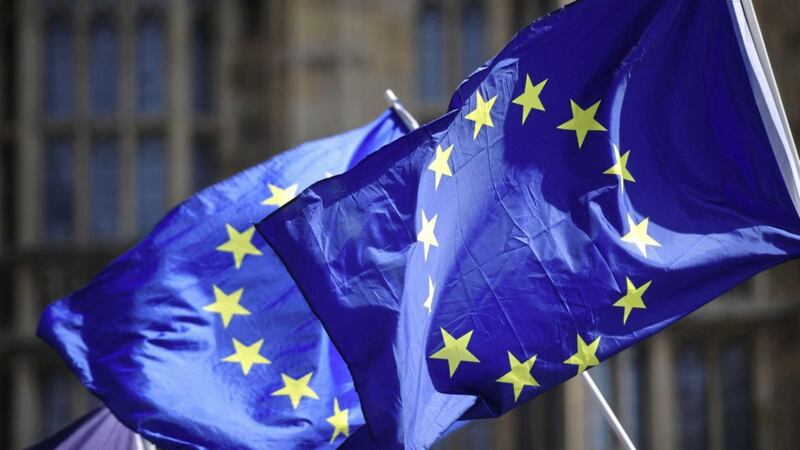History takes some strange turns. Younger readers might find it hard to believe that, back in the 1960s, the United Kingdom was banging on the door to join the European Economic Community, predecessor of the European Union, and got very annoyed when France’s President Charles de Gaulle stood in its way.
Given the role the British played in restoring French sovereignty during World War Two, they must have felt he was an ungrateful wretch. But it is clear that he didn’t think the Brits were ever going to make good Europeans.
One of the reasons he gave still rings a bell, namely, their propensity for seeking cheap food from all over the world.
He made that remark back in 1967, when Boris Johnson and Nigel Farage were chirpy little toddlers and two years before Jacob Rees-Mogg made his entry to the world.
When the British finally secured EEC membership in 1973, along with Ireland and Denmark, you would have had your sanity questioned if you predicted they would vote, some 40-odd years later, to leave the club.
But that’s what they decided in 2016, blithely unaware of how difficult it was going to be. Divorce has its complications, whether it’s a married couple or a group of European states. Instead of ‘Everything’s Coming Up Roses’ the British should have been taking Neil Sedaka’s advice that ‘Breaking Up Is Hard To Do’.
Quite a lot of UK politicians and their supporters are closet Remainers but some of them are wary of demanding a second Brexit vote. When the political establishment in Dublin doesn’t like the outcome of a referendum on EU matters, it rather arrogantly puts the question a second time. That wouldn’t be so easy to get away with in the British system, but then the southern Irish political class is almost unanimously pro-European.
There is a fair degree of Euroscepticism among the 26-county grass-roots but this is not reflected in a really significant way at party level or the news media. Sinn Féin used to represent that school of thought, but not in a fundamental way any more.
It is unthinkable that the sentiments expressed by Boris Johnson in his Daily Telegraph column last week would be expressed by any mainstream politician in Dublin.
In a curious way, his words recall the views expressed by Sinn Féin Kevin Street, as Mary Lou’s party was called at the time, who urged a No vote in the original Irish referendum on EEC membership in May 1972. Daithí Ó Conaill, director of the Sinn Féin campaign on the issue, declared that the proposal to join what was also called the Common Market was a “sell-out”. Party president Ruairí Ó Brádaigh said the government in Dublin was engaged in the “final betrayal of the Irish nation”. A poster in the name of the “Republican Movement, 2a Lower Kevin Street, Dublin”, carried the message: “If you believe in a united, prosperous and independent Ireland, vote Níl/No.” There was even a poster appeal from prisoners in Long Kesh camp headed: “Internees say No”.
Some of the rhetoric was remarkably similar to what we’re hearing from Boris Johnson at present. The former foreign secretary deploys terms such as “total surrender”, “craven”, “shameful”, “subservient” and “capitulation”. Like Rees-Mogg and Nigel Dodds he has also used the feudal expression “vassal state”.
There is one statement from Johnson which, if true, would suggest that present-day Sinn Féin may be on the right path from a republican point of view. Commenting on the result of the London-Brussels negotiations, he said: "For the first time since partition, Dublin - under these proposals - would have more say in some aspects of the government of Northern Ireland than London.”
Any move that suggests a weakening of the British connection inevitably causes unionist upset. But the current imbroglio heightens the prospect of an early general election that could end up with a Labour government in power, perhaps with Lib Dem support. Given the history of Jeremy Corbyn and John McDonnell on “The Irish Question”, that is not a development that would appear to strengthen the union.
Meanwhile Sinn Féin, having had a disastrous presidential election in the south where its candidate got only 6.4 per cent of first-preference votes, has suffered another blow with the resignation of Peadar Tóibín TD. In the last general election, Tóibín got an impressive 24.5 per cent on the first count in the Meath West constituency, but was recently suspended for the second time for voting against the party’s stance on abortion. A highly-articulate politician and fluent Irish-speaker, Tóibín is talking about setting up a new party or grouping.
His departure is a big loss: discipline may be important in politics but deeply-sensitive issues of conscience such as abortion really should be the subject of a free vote, as it is with Fianna Fáil and Fine Gael.
Ddebre1@aol.com l.








